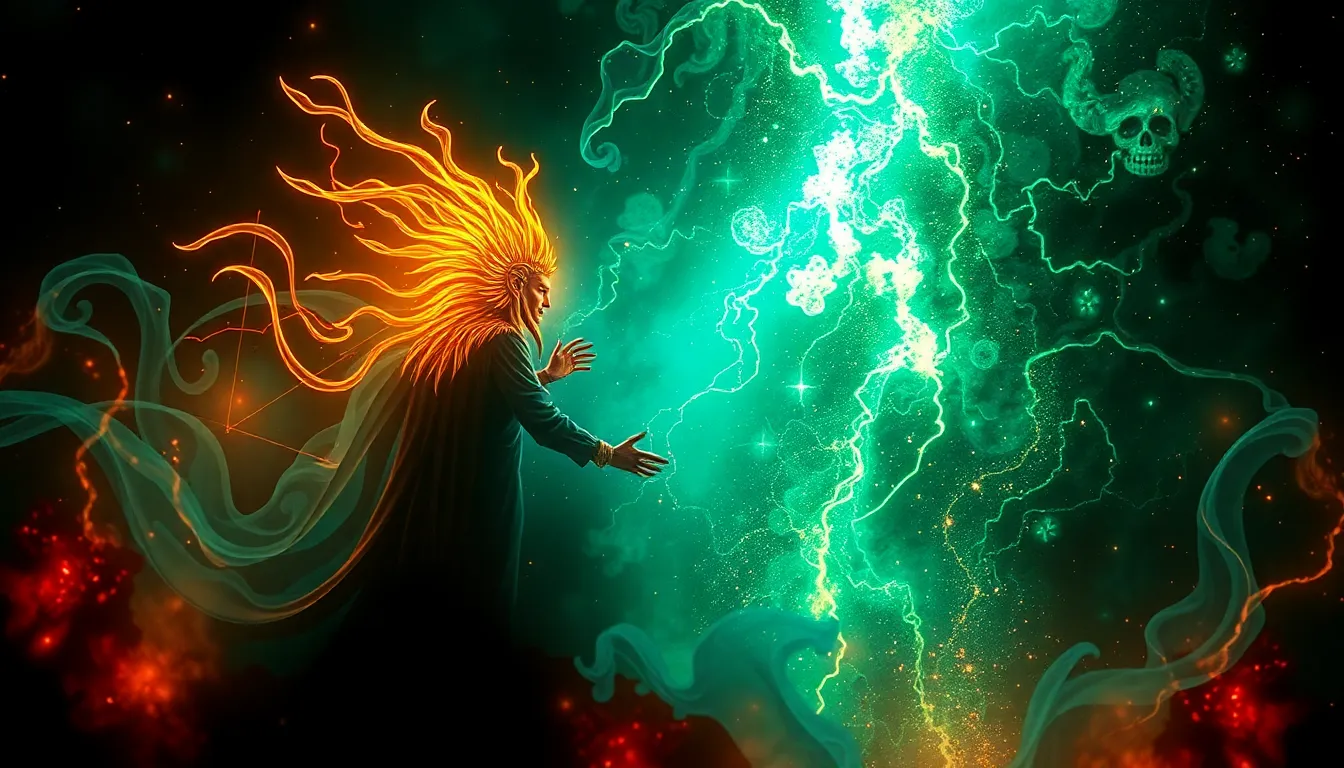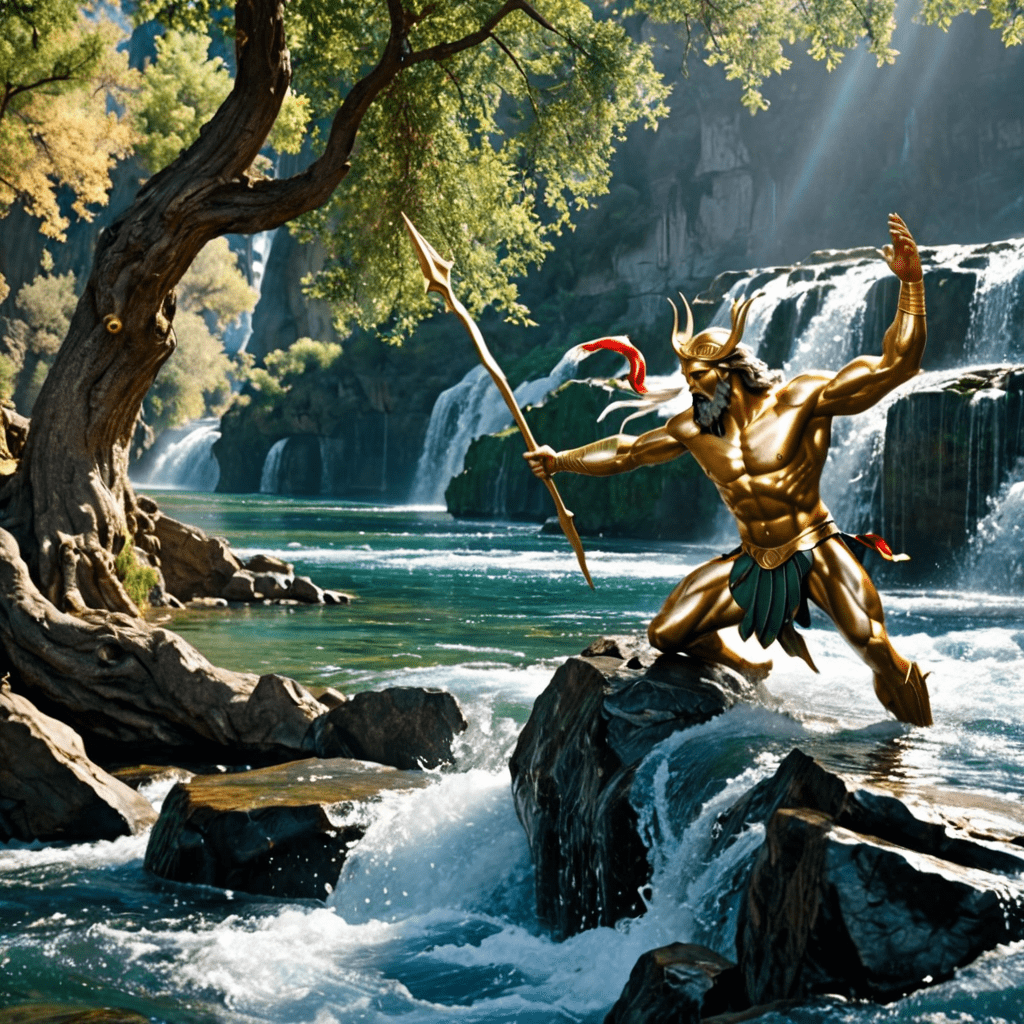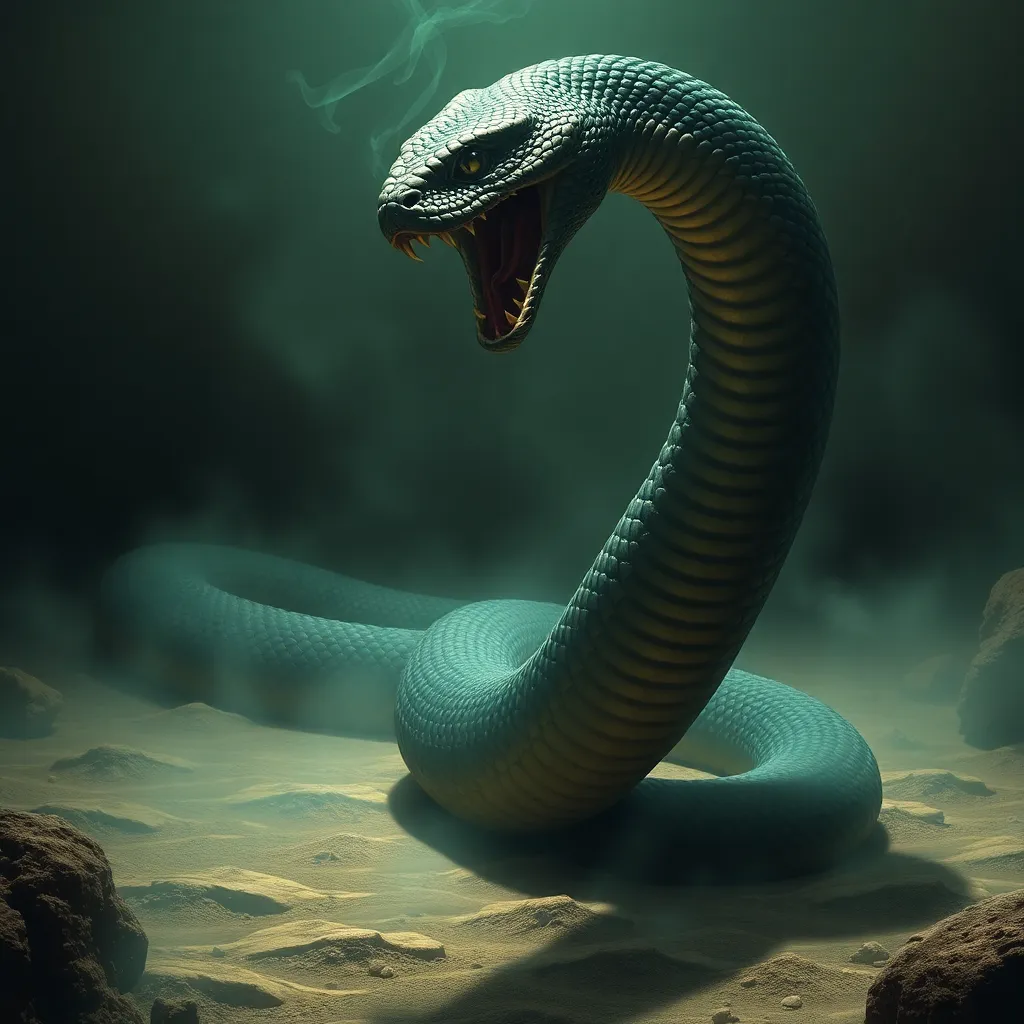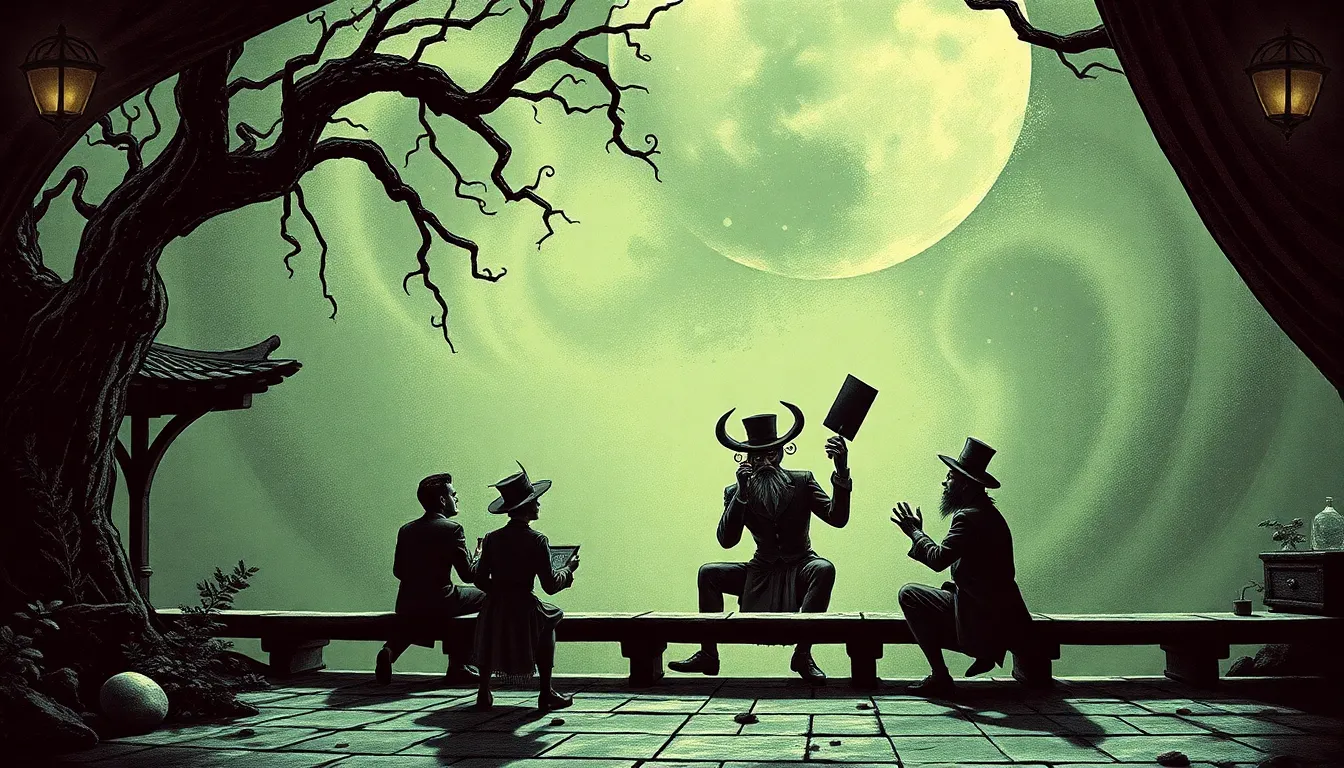From Gods to Humans: The Journey of Creation Across Cultures
I. Introduction
Creation myths have always played a significant role in shaping human understanding of existence. Across various cultures, these narratives offer insights into the origins of the universe, humanity, and the intricate relationship between the divine and the mortal. They serve not only as explanations for the world around us but also as reflections of cultural values and human identity.
This article aims to explore diverse creation narratives from ancient to modern times, highlighting how different cultures interpret the act of creation and the significance it holds in their belief systems.
II. Ancient Near Eastern Myths
The ancient Near East is rich with creation myths that have influenced many subsequent religious and philosophical ideas.
A. The Enuma Elish: Babylonian creation
The Enuma Elish is a Babylonian creation epic that describes the emergence of the world from a primordial chaos. In this myth, the god Marduk defeats the chaos monster Tiamat and uses her body to create the heavens and the earth. This story emphasizes themes of order arising from chaos and the establishment of divine authority.
B. The Genesis creation account in the Hebrew Bible
The Genesis account of creation presents a monotheistic narrative where God creates the world in six days, culminating in the creation of humanity in His image. This narrative introduces concepts of divine intention and moral order, influencing Judeo-Christian thought profoundly.
C. Egyptian creation myths: Atum and the Ennead
In ancient Egypt, several creation myths exist, with Atum often depicted as the first god who emerged from the chaotic waters of Nun. He creates the Ennead, a group of nine deities, representing various aspects of the universe. These myths highlight the interplay between chaos, order, and the cycles of life.
III. Creation Stories from Indigenous Cultures
Indigenous cultures possess a wealth of creation stories that reflect their unique relationships with nature and the cosmos.
A. Native American creation myths: The Earth Diver
Many Native American tribes share the Earth Diver myth, where a being, often a bird, dives into the primordial waters to retrieve mud, which is then used to create land. This story emphasizes the interconnectedness of all life and the importance of the earth.
B. Aboriginal Australian Dreamtime stories
In Aboriginal Australian cultures, Dreamtime stories explain the creation of the world, its creatures, and the laws governing them. These narratives are deeply spiritual, linking the land to the identity of the people.
C. Maori creation narratives: Te Po and Te Ao Marama
Maori mythology speaks of Te Po (the realm of darkness) and Te Ao Marama (the world of light). The separation of these realms leads to the creation of the world and its inhabitants, reflecting themes of duality and balance.
IV. Eastern Philosophies and Creation
Eastern philosophies provide diverse perspectives on creation, often intertwining with spiritual and ethical teachings.
A. Hindu creation myths: Brahma and the cosmic egg
In Hindu tradition, Brahma, the creator god, is born from a cosmic egg (Hiranyagarbha) and creates the universe. This myth articulates the cyclical nature of creation and destruction, central to Hindu cosmology.
B. Chinese creation tales: Pangu and the separation of heaven and earth
The Chinese myth of Pangu describes how the giant Pangu emerged from chaos and separated heaven from earth. His death leads to the formation of the world, symbolizing sacrifice and the interconnectedness of all existence.
C. Buddhist perspectives on creation and existence
Buddhism generally views creation as cyclical rather than linear, focusing on the impermanence of all things. The concept of interdependent origination suggests that all phenomena arise in relation to one another, emphasizing the transient nature of existence.
V. Greco-Roman Creation Myths
The Greco-Roman world produced rich narratives that explore the origins of gods and humanity.
A. Hesiod’s Theogony and the birth of the gods
Hesiod’s Theogony outlines the genealogy of the gods, detailing how chaos gave rise to Gaia (Earth) and Uranus (Sky), leading to the birth of the Titans and Olympians. This myth reflects the ancient Greeks’ understanding of order and hierarchy in the universe.
B. Ovid’s Metamorphoses: A poetic retelling of creation
In Ovid’s Metamorphoses, creation is depicted through a series of transformations, illustrating the fluidity of existence and the interplay between divine and mortal realms. This work highlights the Roman appreciation for mythological storytelling.
C. Philosophical interpretations of creation in Ancient Greece
Philosophers like Plato and Aristotle offered various interpretations of creation, often emphasizing rationality and the role of a prime mover or a divine craftsman in shaping the cosmos.
VI. African Creation Narratives
Africa boasts a diverse array of creation myths, each reflecting the unique cultures and environments of its people.
A. The Dogon people and their unique cosmology
The Dogon people of Mali possess a complex cosmology that describes the creation of the universe, including the significance of the star Sirius. Their myths convey advanced astronomical knowledge intertwined with spiritual beliefs.
B. The creation story of the Ashanti and Nyame
In Ashanti mythology, the god Nyame is the creator who forms the world and its inhabitants. His narrative emphasizes the relationship between the divine and humanity, underscoring themes of respect and reverence for creation.
C. Variations in creation myths across different African cultures
Across Africa, creation myths vary widely, with some emphasizing the role of trickster figures, while others focus on a singular creator deity. These stories often convey moral lessons and cultural values.
VII. Creation in Modern Religions
Modern religions continue to grapple with creation narratives, often blending ancient myths with contemporary beliefs.
A. Creation accounts in Christianity: Different interpretations
Christianity presents various interpretations of the Genesis creation story, with some emphasizing a literal reading while others adopt a metaphorical approach. This diversity reflects broader theological debates within the faith.
B. Islamic perspectives on creation in the Quran
The Quran offers a distinct creation narrative, emphasizing God’s sovereignty and the purposeful design of the universe. It also highlights the importance of human stewardship over creation.
C. Syncretism and the blending of ancient myths with modern beliefs
In many cultures, ancient creation myths have blended with modern religious beliefs, resulting in syncretic traditions that honor both historical narratives and contemporary spirituality.
VIII. The Psychological and Cultural Impact of Creation Myths
Creation myths serve as vital components in shaping cultural identity and psychological frameworks.
A. Creation myths as reflections of cultural values and identity
Creation narratives often encapsulate the values, beliefs, and historical experiences of a culture, helping individuals understand their place in the world.
B. The psychological role of creation stories in human societies
These myths provide comfort and meaning, helping people navigate existential questions about life, death, and the universe.
C. The influence of creation narratives on art and literature
Creation myths have inspired countless works of art and literature, influencing themes of birth, transformation, and the human condition across various mediums.
IX. Comparative Analysis of Creation Myths
Examining creation myths across cultures reveals common themes and differences, enriching our understanding of human thought.
A. Similarities and themes across various cultures
Many creation myths share themes of chaos giving rise to order, the emergence of humanity, and the role of divine beings in shaping the world.
B. The role of chaos and order in creation narratives
Chaos often serves as the backdrop for creation, highlighting the transformative journey from disorder to structured existence.
C. The symbolism of gods, humans, and the natural world
Creation stories frequently explore the relationships between gods, humans, and nature, reflecting humanity’s quest for understanding and harmony within the cosmos.
X. Conclusion
Creation myths remain relevant in contemporary society, offering insights into the human experience and our connection to the universe. As we explore these diverse narratives, we appreciate the rich tapestry of beliefs that shape our understanding of



